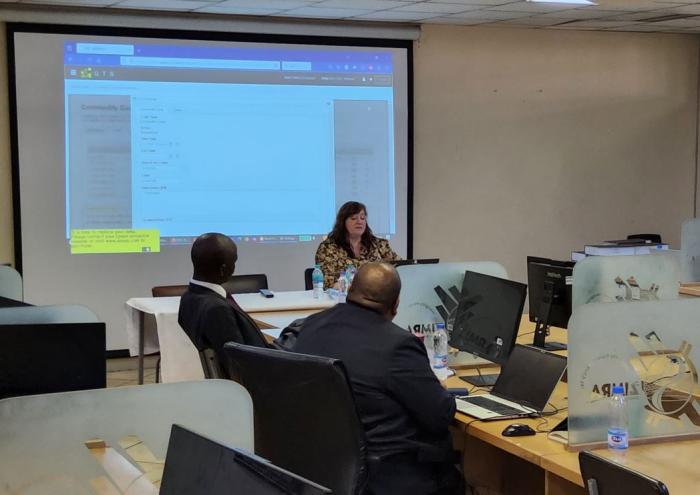In an effort to improve digital services and streamline customs procedures, the Zimbabwe Revenue Authority (ZIMRA) has introduced a new e-tariff tool. The tool is designed to facilitate trade by assisting ZIMRA clients to predict clearance costs with greater accuracy, thereby reducing uncertainties.
From June 17-19, 2024, ZIMRA conducted an awareness workshop for its staff, led by Helen Scrimgeour, a consultant from United Nations Trade and Development (UNCTAD). The purpose of the workshop was to capacitate ZIMRA personnel in the effective administration of the e-tariff tool. The e-tariff tool is a digital platform designed to simplify the process of tariff classification and duty calculation. By inputting details about their shipments, users can obtain estimated duty calculations, permitting them to better plan and budget for their import and export activities. This proactive approach fosters greater efficiency and reduces the potential for delays or unexpected costs.
The introduction of the e-tariff tool represents a significant step forward in ZIMRA's ongoing efforts to modernize its operations and align with international good practices in customs administration. By leveraging digital technologies, the Authority aims to provide a more efficient and user-friendly experience for its stakeholders. This also aligns seamlessly with the objectives of Zimbabwe's National Development Strategy 1(NDS1), which emphasizes the importance of leveraging technology to enhance public service delivery.
“As an organisation we expect the e-tariff tool to clarify the customs clearance process, reduce processing times, and minimize errors in duty calculations. This, in turn, will benefit ZIMRA's clients, who can now make more informed decisions and better manage their supply chain logistics”, said Mr Swarres, ZIMRA Head Compliance and Automation.
“The e-tariff tool is a game-changer for our clients,” remarked Helen. “It empowers them to take control of their customs obligations and plan their activities with greater certainty. This is a welcome development that will without doubt boost Zimbabwe's trade competitiveness”.
ZIMRA and UNCTAD partnership served as a crucial milestone in ZIMRA’s journey towards modernizing its traditional customs operations. The joint effort not only builds capacity within ZIMRA but also enhances the Authority’s capability to adapt to evolving global trade dynamics.
As Zimbabwe continues to position itself as a regional hub for trade and investment, initiatives such as the adoption of the e-Tariff tool will play a pivotal role in achieving sustainable economic development. By embracing digital transformation in customs administration, Zimbabwe can foster a conducive business environment that attracts investment, stimulates growth across sectors, and contributes to the realization of its developmental aspirations outlined in the National Development Strategy 1.
The ongoing commitment to innovation and capacity building within ZIMRA underscores Zimbabwe’s readiness to embrace the opportunities of a globalized economy while safeguarding its national interests and developmental priorities.

